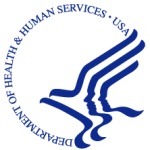- Branche: Government
- Number of terms: 33950
- Number of blossaries: 0
- Company Profile:
United States Department of Health and Human Services, Radiation Emergency Medical Management
A measure of the risk of a certain event happening in one group compared to the risk of the same event happening in another group. In cancer research, risk ratios are used in prospective (forward looking) studies, such as cohort studies and clinical trials. A risk ratio of one means there is no difference between two groups in terms of their risk of cancer, based on whether or not they were exposed to a certain substance or factor, or how they responded to two treatments being compared. A risk ratio of greater than one or of less than one usually means that being exposed to a certain substance or factor either increases (risk ratio greater than one) or decreases (risk ratio less than one) the risk of cancer, or that the treatments being compared do not have the same effects. Also called relative risk.
Industry:Health care
Cancer that begins in squamous cells, which are thin, flat cells that look like fish scales. Squamous cells are found in the tissue that forms the surface of the skin, the lining of the hollow organs of the body, and the passages of the respiratory and digestive tracts. Also called epidermoid carcinoma.
Industry:Health care
The major glycosaminoglycan (a type of sugar molecule) in cartilage.
Industry:Health care
A drug that belongs to the family of drugs called chemoprotective agents.
Industry:Health care
In medicine, a device such as a small metal plate or needle that carries electricity from an instrument to a patient for treatment or surgery. Electrodes can also carry electrical signals from muscles, brain, heart, skin, or other body parts to recording devices to help diagnose certain conditions.
Industry:Health care
The main sensory nerve of the head and face, and the motor nerve of the muscles used in chewing. Also called trigeminal nerve.
Industry:Health care
A substance that has many effects in the body. It is released from some types of white blood cells during allergic reactions. It causes small blood vessels to dilate (widen) and become leaky, which can cause tissues to swell. It also causes smooth muscles to contract, gastric acid to be made, and the heart rate to increase. Histamine is used in tests for allergies, asthma, and gastric acid secretion. It is a type of neurotransmitter.
Industry:Health care
In the body. The opposite of in vitro (outside the body or in the laboratory).
Industry:Health care
